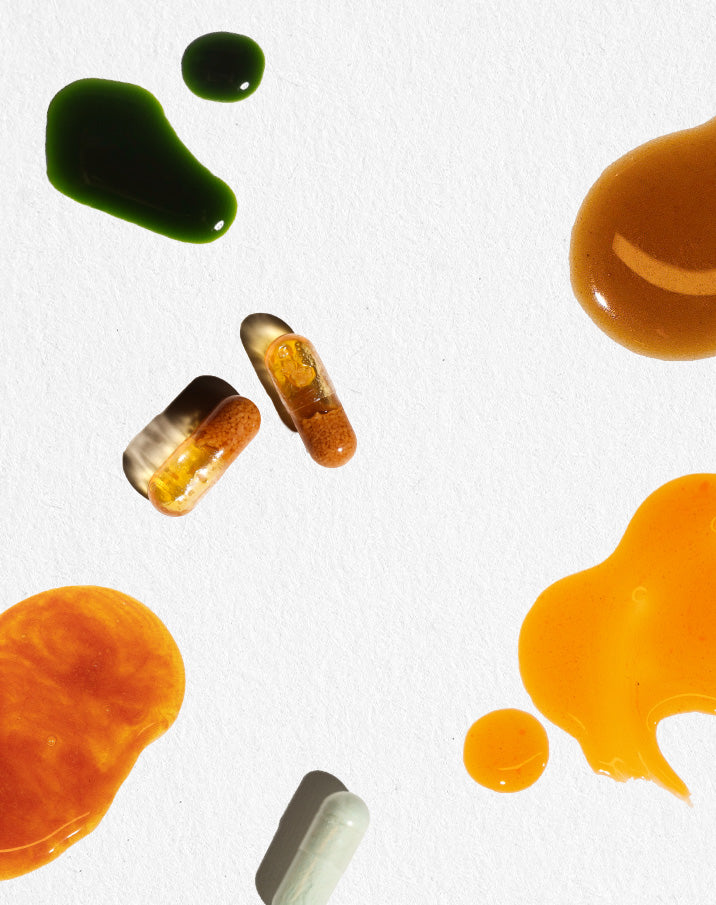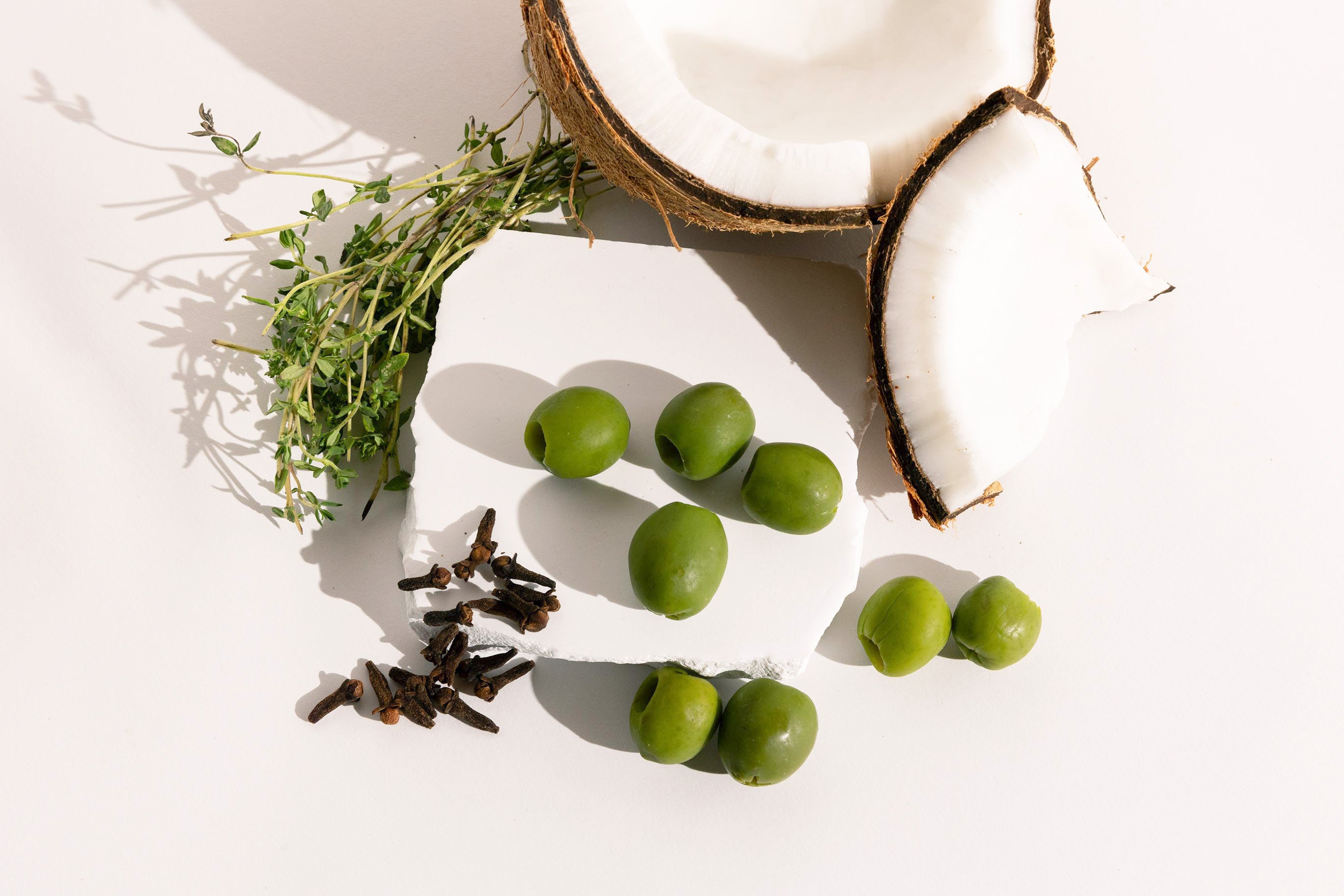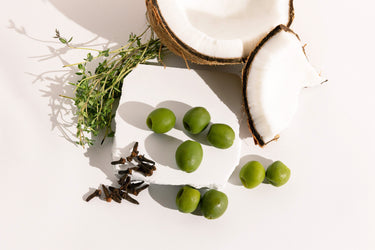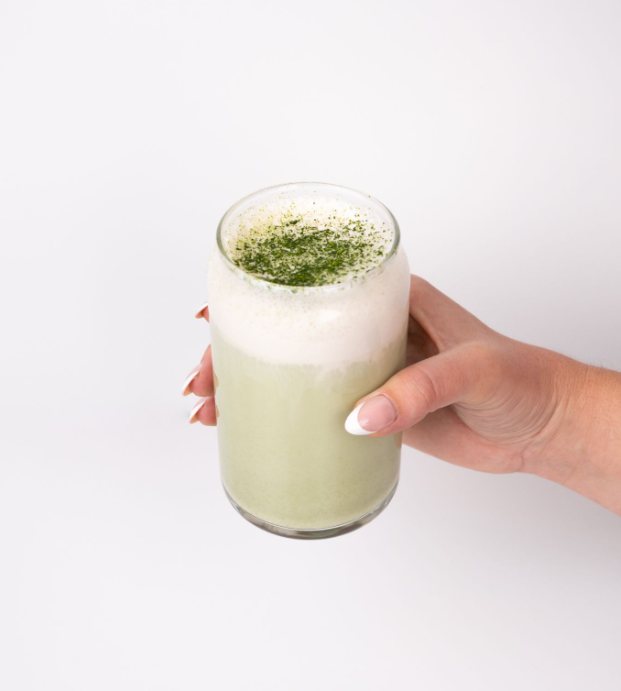
We’re all thinking about how to keep our immune systems in peak condition. When you’re not feeling great, you want to know what vitamins to take when sick. This includes exploring new supplements like Vitamin D3 K2, foods, and habits to help optimize our health. Along the way, you’ve probably heard of probiotics for supporting digestive health and proper gut function. But do probiotics help immune system function, too?
In fact, new research has begun to show that the microscopic residents of the gastrointestinal tract play a much bigger part in whole-body wellness than we ever suspected before.1 Although many of us may not think much about it, digestive health is the foundation of every other function in our bodies.
The probiotics immune system connection is real, but there’s much more to learn—we’re going to break down everything you need to know about using probiotics for immune support.
What Are Probiotics?
If you’re plugged into the health and wellness world, no doubt you've been hearing about the wonders of probiotics. But even with all this buzz, you may still be wondering—what exactly are they?
The easiest way to think of probiotics is as a form of good bacteria.2
The human body relies on colonies of these helpful bacteria, inside and out, to perform many of our essential functions. In the intestines and colon, these beneficial bacteria colonies help break down the nutrients in our food, allowing them to be absorbed into the bloodstream and used throughout our bodies. The metabolization and fermentation of nutrients from food as it passes through your intestines is key to making nutrients available for cellular processes.
To understand how probiotics work, keep these points in mind:
- The same strains of bacteria that occur in the gut are also found in fermented foods.
- Probiotic supplements can also contain the same types of bacteria.
- Consuming foods or supplements that contain these living microorganisms may help support overall health by boosting the numbers of good bacteria in your gut microbiome.2
How Probiotics Support the Immune System
Zinc complexes are known to be a key nutrient for immune system health but you may also be wondering how beneficial probiotic bacteria can encourage a healthy immune system. Research is still exploring the connection between the gut microbiome and the immune system. What we do know is that the digestive tract is an important piece of the immune system.1
Many immune cells reside in the lower intestine. Therefore, oral probiotic supplements may be able to directly support this portion of the immune system.
It’s not entirely clear if probiotics can help prevent respiratory illnesses like colds and flu, or simply improve whole-body wellness so that you’re better able to fight off disease. However, a 2020 meta-analysis of studies on the effect of probiotics on respiratory infections and immune response concluded that probiotics are effective at stimulating the immune system and inhibiting viral replication.1
It appears that probiotics do help shorten the duration of respiratory infections, but more research is needed to understand exactly how they do this. For now, we can safely say that a balanced gut microbiome is critically important to:1
- Maintaining digestive health
- Maintaining a healthy intestinal lining, where many immune cells are found
- Supporting proper nutrient absorption
- Preventing inflammatory bowel diseases, such as Crohn’s disease and ulcerative colitis
Types of Probiotic Bacteria
The beneficial bacteria in your gastrointestinal tract support all of these functions and more. This is why a balanced gut microbiome leads to better overall health, resilience, and disease resistance in general, beyond just immune health.
There are many thousands of bacteria types found in the gut and elsewhere in the human body. But there are two main strains you’ll find most commonly in probiotic supplements as well as in certain foods. These strains are:2
- Lactobacillus
- Bifidobacterium
These are also the bacterial strains that researchers have focused on most while researching the probiotic and immune function connection.1
What Causes Your Gut’s Bacteria to Become Imbalanced?
You may wonder why the bacteria in your intestines would need probiotic supplementation. After all, don’t bacteria colonies usually grow rapidly without any help?
In fact, the microbiome in your digestive tract is a delicate balance between many kinds of bacteria—some helpful, and some possibly harmful bacteria. Many factors can negatively impact this balance, reducing helpful bacteria and allowing harmful bacteria to flourish.3 Overgrowth of these competing bacteria can lead to inflammation and infection.
Factors that can throw off the balance of your gut microbiome include:3
- Antibiotic treatment
- Stress
- Diets low in high-fiber plant foods4
- Sedentary lifestyle
- Smoking
- Alcohol consumption
- Poor sleep habits
In this case, eating probiotic food or adding probiotic supplementation to your diet can help balance out those bad bacteria with beneficial gut bacteria. So how do you add probiotics to your routine for gut health and immune function?
How to Add Probiotics to Your Wellness Routine
With so many challenges to maintaining a healthy gut microbiome, you might wonder what you can do to rebuild it. The first key is eating a varied diet that includes lots of whole plant foods, fiber, and complex carbohydrates.
Studies have shown that people with diets rich in plant foods and fiber show much more diverse and robust gut microbiomes than those consuming a typical Western diet (high in refined carbs and sugar and low in fiber).4 Your gut microbiome relies on a broad range of fibers, starches, and pectins to thrive.5
In addition to a healthy diet, you can add more support for your gut health by:
- Eating probiotic foods
- Taking healthy gut supplements
- Supporting your existing beneficial bacteria colonies with prebiotics
Let’s take a closer look at these three key strategies for boosting your gut health.
#1 Consume Probiotics Through Food Sources
It’s not easy to keep our diets as varied as they should be. Even with the best of intentions, the food available in our supermarkets lacks variety. Due to modern farming techniques, most of the plants in our diets now come from just 12 plant species.6 As our diets lose diversity, so do our gut microbiomes.6
Luckily, there are a variety of probiotic-rich fermented foods you can add to your diet. When foods are properly aged or fermented, it allows bacterial colonies to develop. While we usually think of bacteria in food as a bad thing, there are actually many types of beneficial bacteria that colonize our foods.
Here are a few of the most common plant-based food sources of probiotics:6
- Kombucha
- Sauerkraut
- Kimchi
- Tempeh
#2 Take a Probiotic Supplement
One simple way to ensure that your routine includes enough probiotics is to use an oral supplement containing live beneficial bacteria.
There are many probiotics on the market, so be sure to choose a supplement that specifies:6
- Live bacteria – For a probiotic to be effective, the microorganisms need to be alive. Be sure the label specifies an expiration date.
- Which bacterial strains are included – Most commonly, these will be in the Lactobacillus or Bifidobacterium families. You may also see Saccharomyces Boulardii, a bacteria derived from yeast.2
- Whether prebiotics are included – Some probiotic supplements include prebiotics, which may assist with the establishment of probiotic colonies by providing a ready food source.6
- CFU per serving – CFU stands for colony forming unit. This number indicates how many living bacteria a serving of the supplement contains.
#3 Add Prebiotics to Support Your Probiotics
Prebiotics and probiotics are often confused for each other, but they are two different components of gut health.
Prebiotics are carbohydrates that beneficial bacteria feed on.7 It’s believed that taking these prebiotic nutrients at the same time as a supplement containing probiotics may help the beneficial bacteria establish a colony in the gut by providing a ready food source.
For the bacteria in your gut to metabolize a prebiotic, it needs to pass through your stomach and intestines and arrive in your colon relatively intact. That means prebiotics must be high in the kinds of fiber and starch that break down slowly in the digestive system.5
Many kinds of grains, fruits, and vegetables are prebiotics, including:
- Potatoes
- Oats
- Rice
- Legumes
- Apples
- Carrots
- Onions
- Yams
However, the way foods are prepared changes their ability to survive the digestive process.5 This is why many people prefer to take a supplement that includes a prebiotic, so it’s more likely to be available for gut bacteria to metabolize it.
When You Should Talk to Your Healthcare Provider About Probiotics
Probiotics are generally very safe and have few side effects for people who are in good health overall.8 The side effects that are occasionally reported tend to be mild, such as stomach upset or bloating. These can usually be moderated by reducing the amount of the supplement until your system is accustomed to it.
However, if you have a compromised immune system or a severe illness, it’s important to talk to your doctor before adding a probiotic to your regimen.2
Whole Body Wellness Starts with Cymbiotika
A balanced, thriving gut biome isn’t just about digestive health. It’s also a vital part of a strong and effective immune system. Adding a probiotic immune system product to your routine is an excellent start to building your overall health, but remember to choose a quality product that contains a wide variety of live bacterial strains.
When you add a probiotic like the Cymbiotika Probiotic to your wellness regimen, you know you’re getting 50 billion CFU in each serving, including 19 probiotic strains and plant-based prebiotics. Made with a unique formulation of herbal extracts, aloe to support the health of the intestinal lining, and amino acids, you’ll get everything you need for optimal digestive health and immune support.
Feeling good starts with your gut. When you’re ready to take back your digestive health, Cymbiotika is here to help.
Sources:
- Nutrients. Role of probiotics in stimulating the immune system in viral respiratory tract infections: a narrative review. https://www.mdpi.com/2072-6643/12/10/3163/htm
- National Center for Complementary and Integrative Health. Probiotics: what you need to know. https://www.nccih.nih.gov/health/probiotics-what-you-need-to-know
- Microbial Ecology in Health and Disease. Dysbiosis of the gut microbiota in disease. https://www.ncbi.nlm.nih.gov/pmc/articles/PMC4315779/
- Proceedings of the National Academy of Sciences of the United States of America. Impact of diet in shaping gut microbiota revealed by a comparative study in children from Europe and rural Africa. https://pubmed.ncbi.nlm.nih.gov/20679230/
- Cleveland Clinic. What are prebiotics and what do they do? https://health.clevelandclinic.org/what-are-prebiotics/
- Molecular Metabolism. A healthy gastrointestinal microbiome is dependent on dietary diversity. https://pubmed.ncbi.nlm.nih.gov/27110483/
- Gut. Insight into the prebiotic concept: lessons from an exploratory, double blind intervention study with inulin-type fructans in obese women. https://pubmed.ncbi.nlm.nih.gov/23135760/
- Cleveland Clinic. Prebiotics vs. probiotics: what’s the difference? https://health.clevelandclinic.org/prebiotics-vs-probiotics-whats-the-difference/
- Archives of Medical Research. Probiotics in prevention and treatment of COVID-19: current perspective and future prospects. https://www.ncbi.nlm.nih.gov/pmc/articles/PMC7972717/
- Pharmaceutics. Probiotic encapsulation technology: from microencapsulation to release into the gut. https://www.ncbi.nlm.nih.gov/pmc/articles/PMC3834910/







